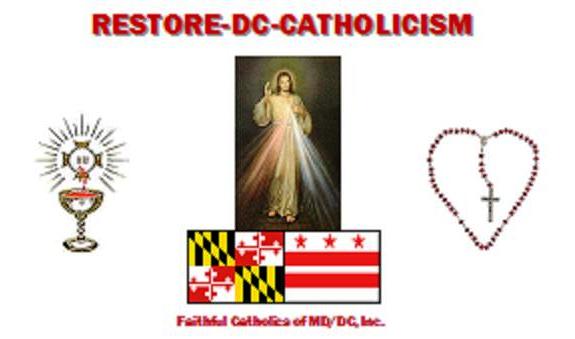First a word of "personal disclosure". For most of my young adulthood I was involved in the Catholic "charismatic renewal"; more specifically I was affiliated with Mother of God Community headquartered in Gaithersburg. I am now an "ex-charismatic", to coin a term, and some reasons will be made clear.
At an address to a charismatic convocation in St. Peter's Square a few days ago, the pope uttered this statement: "It is preferable that every service, even in the Church, come to an end. There should be no lifelong leader. This happens in some countries ruled by a dictatorship." IF he merely meant to refer to leadership as found in charismatic groups, I'll be the first to cry "AMEN!" Let me provide a little "history-refresher". During the mid 1990s, many of the charismatic groups, under leaders who firmly ensconced themselves into their positions, claiming divine unction in so doing, became cults (see right side-bar, to the bottom). They utilized thought-reform techniques on their members; most members, not being schooled in psychology, fell victim to these techniques. This was doubly true of younger members; I was among that number. But eventually some members snapped out of it and took matters up with their bishops and the press. This happened nationwide. For Mother of God Community, that saga was chronicled in a series of articles found at Washington Post. Normally I don't ascribe much credence to things proceeding from the Post, but I can attest to what was written therein based on my own 20+ years of first-hand experience. I urge its review, for those who refuse to learn from history will repeat it.
If you read the series, you'll see that the problems stemmed largely from a stubbornly-entrenched leadership. While our situation was playing out, so were several other situations across the country. I'd not be surprised if this happened world-wide. In this context, the pope's remarks are understandable. I do wonder about the "every service" part, for that language does encompass the papacy itself, regardless of intentions. Given past miscues, I'm not inclined to just write it off to sloppy verbal presentation. Was he utilizing a very real problem in recent history to undermine the life-long office of the Vicar of Christ?
We now move to another part of this address. Speaking of the murders of Christians in the mid-east, he says, "If the enemy unites us in death who are we not to be united in life?" First, our enemies don't "unite" us in anything. Their murderous acts do not arbitrate who is Christian and who isn't. What I just said is not intended as a judgment on those murdered, but merely to disavow us of the notion that muslim terrorist attacks determine our unity. Second, how does real unity come about? Through common belief in objective truth, namely, belief in the fullness of truth contained in the Roman Catholic Church. There is no "short-cut" when it comes to unity. We don't just decide to "be united" and lickety-split, there unity is. We Catholics must proclaim the truths of our faith and then others must accept them. Without that, there is no basis to even pretend at unity, muslim terrorists notwithstanding. By the way: in interests of "unity" and "ecumenism" we American Catholics backpedaled from preaching the fullness of our Faith to non-Catholic Americans. That is why abortion, contraception and homosexuality are running rampant through our culture at this very moment.
Pray and offer sacrifices for Holy Mother Church. Until she's set aright, I cannot see how there will be a channel for God's grace in a world that desperately needs Him.
Subscribe to:
Post Comments (Atom)







How refreshing to read your words "We Catholics must proclaim the truths of our faith and then others must accept them." We have the words of Our Lord Jesus, St. Paul, and many great intellectual Saints before us who taught us the truths of our faith. They also taught us to speak these truths no matter what. And they DIED for it. Thanks for your posts. They are simple, truthful and uplifting.
ReplyDelete